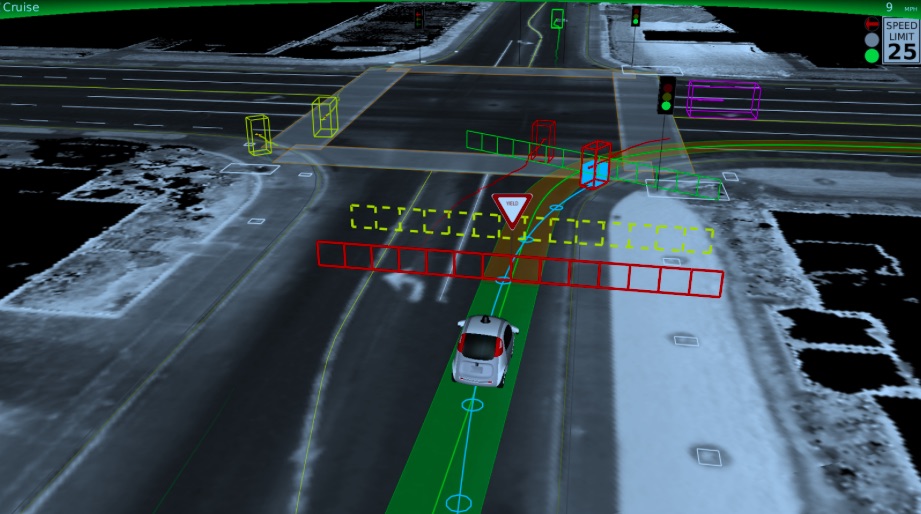
Robohub.org
Google to release monthly driving reports

Self-driving car keeping track of multiple moving objects at once, in this instance two cyclists, depicted as red rectangles. Source: Google.
Google has started publicly disclosing details of accidents involving its self-driving cars.
In the past weeks reports of incidents involving the company’s autonomous vehicles looked to be multiplying. Under Californian law, details of car accidents remain confidential. But, in its May Monthly Report, Google claims that its vehicles were not responsible for any of the 12 accidents they’ve been involved in since testing began in 2009.
Google released the first of what it says will be monthly reports last week. It summarises accident data and highlights from testing, and includes a synopsis of all 12 accidents. Most involved the autonomous vehicles being either rear-ended, sideswiped, or hit after another vehicle failed to follow basic traffic safety laws, such as stopping at a stop sign, according to Google.
The report also gives illustrations and examples of how the driverless cars, which average 10,000 autonomous miles per week on public streets, are able to adapt to traffic situations.
The reports are available to download on a dedicated website: www.google.com/selfdrivingcar/reports
tags: Automotive, autonomous vehicles, Google





